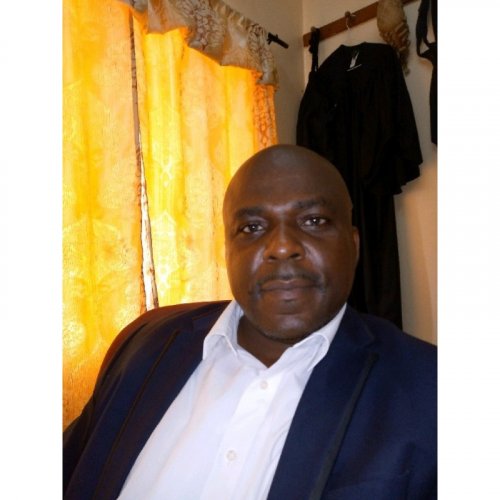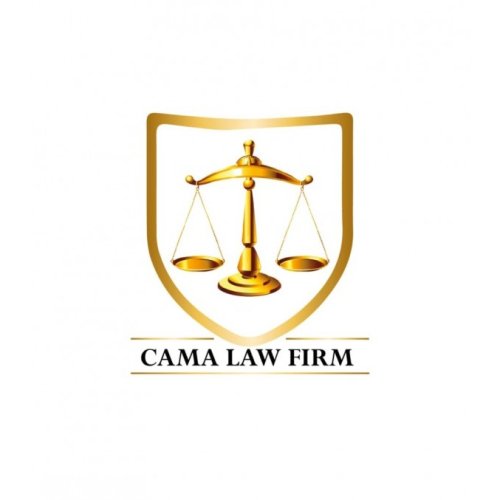Best Education Law Lawyers in Cameroon
Share your needs with us, get contacted by law firms.
Free. Takes 2 min.
Or refine your search by selecting a city:
List of the best lawyers in Cameroon
About Education Law in Cameroon
Education Law in Cameroon encompasses the legal regulations governing educational institutions, policies, and practices within the country. It covers a broad range of issues including the administration of schools, the rights of students and teachers, quality of education, and compliance with national and international educational standards. The legal framework aims to ensure equitable access to education, protect educational rights, and foster an environment conducive to learning for all citizens.
Why You May Need a Lawyer
The complex nature of Education Law may necessitate the need for legal assistance in various situations. Common scenarios where legal help may be required include disputes over school admissions, cases of discrimination or harassment within educational settings, special education needs, school governance issues, teacher employment disputes, and compliance with educational policies. A lawyer specializing in Education Law can provide guidance, representation, and support to navigate these challenges effectively.
Local Laws Overview
Cameroon's Education Law is mainly guided by the country's Constitution, Éducation Law (Law N° 98/004), and regulations set forth by the Ministry of Basic Education and Ministry of Secondary Education. Some key aspects include:
- Compulsory Education: Education is mandatory for children between the ages of 6 to 14 years.
- Language of Instruction: Educational institutions must adhere to bilingual instructional models, primarily in French and English.
- Inclusive Education: Laws promote inclusive education policies, accommodating students with disabilities.
- Private and Faith-Based Institutions: Specific regulations govern the establishment and operation of private and faith-based schools.
- Cultural Preservation: Curriculum development must include national integration themes and cultural preservation.
Frequently Asked Questions
What are the legal requirements for establishing a private school in Cameroon?
To establish a private school, one must obtain authorization from the Ministry of Basic or Secondary Education, ensure compliance with safety standards, and uphold the national curriculum requirements.
How is discrimination addressed within Cameroonian schools?
Discrimination on any grounds, including gender, ethnicity, or disability, is prohibited. There are legal recourses available under national laws that protect students and staff from discriminatory practices.
What legal rights do students have in Cameroonian schools?
Students have the right to quality education, freedom from discrimination and harassment, and access to essential learning materials. They also have the right to participate in decisions affecting their education.
How can parents address grievances with a school?
Parents can address grievances through school administration first. If unresolved, the matter can be escalated to local education authorities or pursued through legal channels if necessary.
Are there laws protecting teachers' rights in Cameroon?
Yes, there are specific laws and regulations that protect teachers' rights, covering issues of employment, contract terms, and working conditions.
What is the procedure for homeschooling in Cameroon?
Homeschooling is not widely recognized; however, any alternative education arrangements must comply with national education standards and guidelines from the Ministry of Education.
What measures are in place for students with disabilities?
There are legal provisions for inclusive education policies to accommodate students with disabilities, ensuring they have equal access to educational opportunities.
Are there legal standards for school facilities?
Yes, educational institutions must comply with health and safety standards and ensure that facilities are conducive to learning.
What actions can be taken if a school violates educational standards?
Violations of educational standards can be reported to the Ministry of Education, which can take regulatory action, including possible closure of the institution.
Is corporal punishment allowed in schools?
Corporal punishment is prohibited in schools, and legal actions can be pursued against individuals or institutions that engage in such practices.
Additional Resources
For further information and assistance, consider consulting the following resources:
- Ministry of Basic Education: Offers guidelines and regulations related to primary education.
- Ministry of Secondary Education: Responsible for secondary education policies and regulations.
- Cameroon Bar Association: Provides directories of qualified lawyers specializing in Education Law.
- NGOs and Advocacy Groups: Organizations like ACTION for Education Cameroon can offer support and advocacy in educational matters.
Next Steps
If you require legal assistance in Education Law, consider the following steps:
- Identify the specific legal issue or concern you face in the education sector.
- Consult with a lawyer specializing in Education Law to gain clarity on your rights and potential legal remedies.
- Gather all relevant documents and evidence related to your case before your consultation.
- Contact the appropriate educational authorities if your issue involves regulatory compliance or administrative matters.
- Seek advice from advocacy groups if your situation involves broader social or public interest matters.
Lawzana helps you find the best lawyers and law firms in Cameroon through a curated and pre-screened list of qualified legal professionals. Our platform offers rankings and detailed profiles of attorneys and law firms, allowing you to compare based on practice areas, including Education Law, experience, and client feedback.
Each profile includes a description of the firm's areas of practice, client reviews, team members and partners, year of establishment, spoken languages, office locations, contact information, social media presence, and any published articles or resources. Most firms on our platform speak English and are experienced in both local and international legal matters.
Get a quote from top-rated law firms in Cameroon — quickly, securely, and without unnecessary hassle.
Disclaimer:
The information provided on this page is for general informational purposes only and does not constitute legal advice. While we strive to ensure the accuracy and relevance of the content, legal information may change over time, and interpretations of the law can vary. You should always consult with a qualified legal professional for advice specific to your situation.
We disclaim all liability for actions taken or not taken based on the content of this page. If you believe any information is incorrect or outdated, please contact us, and we will review and update it where appropriate.
Browse education law law firms by city in Cameroon
Refine your search by selecting a city.










